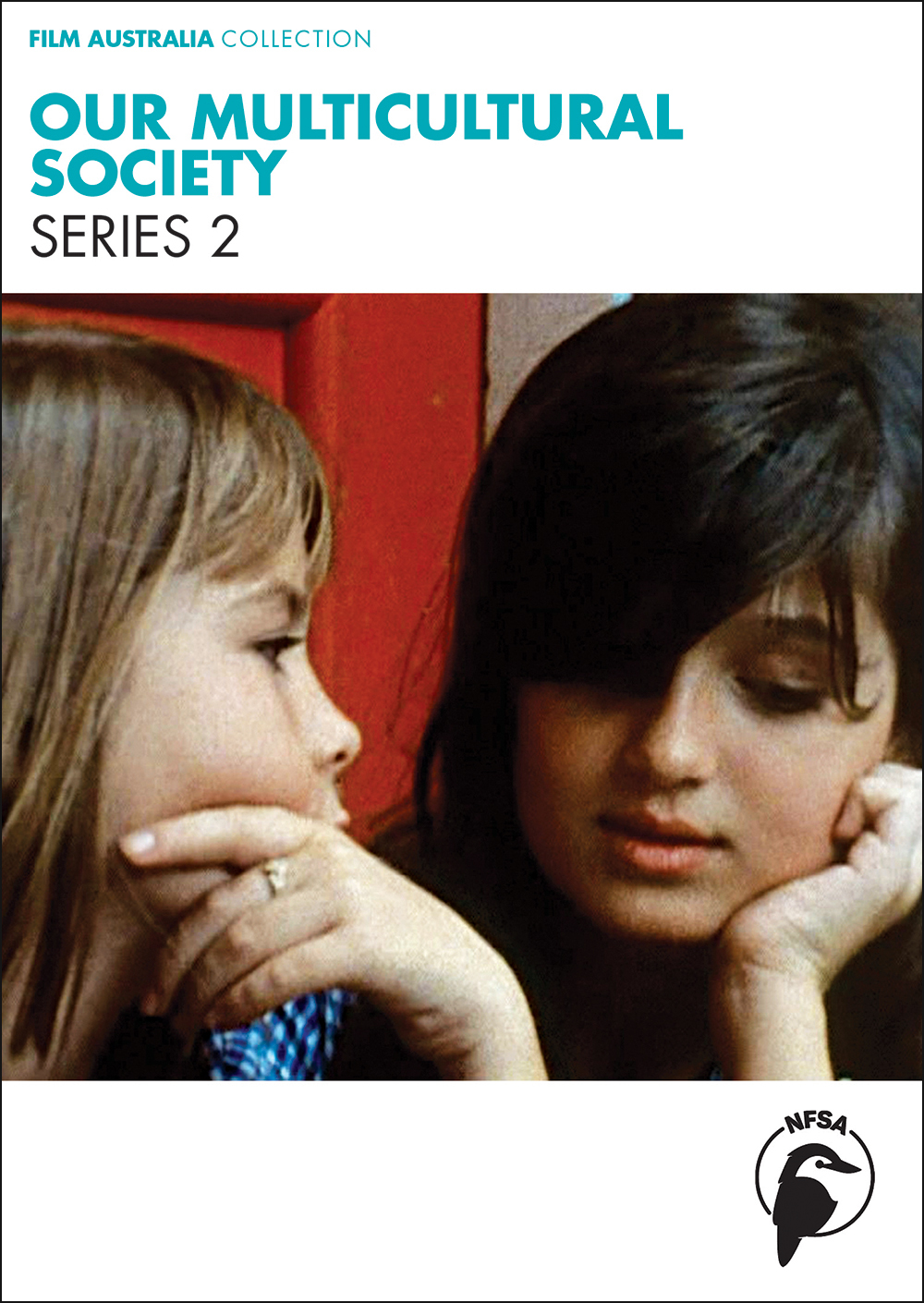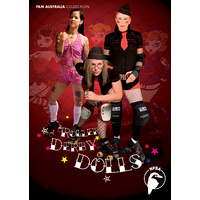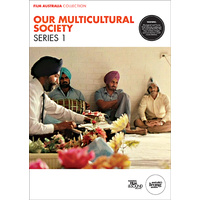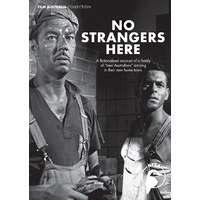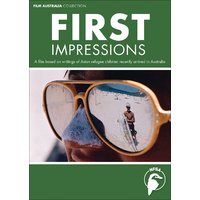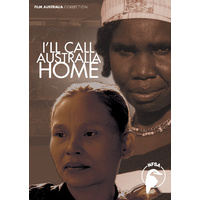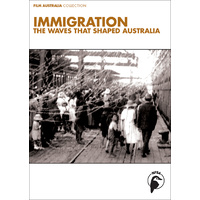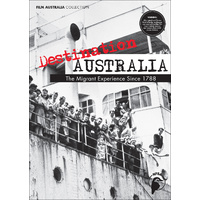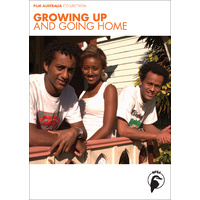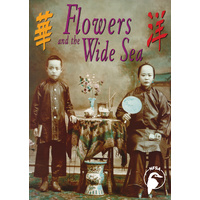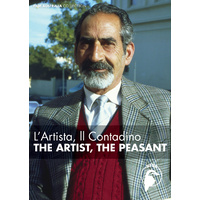1979, Total Running Time 90 Minutes (9 x 10 Minutes)
Our Multicultural Society explores Australia’s cultural diversity. The nine documentaries in this second series explore issues around identity, community, communication, and lifestyle. They consider specific problems or challenges faced by particular individuals or groups, and look at our similarities and differences. The people featured in the progams range from new arrivals and second generation Australians to Indigenous Australians.
Roslyn and Blagica - Everybody Needs a Friend Roslyn and Blagica have been friends since they met in third class four years ago. Their warmth, closeness and affection are obvious to all. Inseparable during the day, they don’t see each other outside school - they don’t live close by and are concerned their parents won’t be able to communicate with each other. In this program, Blagica explains why her family chose to emigrate from Yugoslavia and how teasing and lack of acceptance by children at school made her want to “become Australian”. Roslyn explains her desire that Australians welcome people from other countries and learn about their languages and cultures. At the school they attend, 30 per cent of the students are Anglo-Saxon, 30 per cent Greek, 20 per cent Yugoslav and 10 per cent Turkish. As the principal observes, the school is the seed of the future, where difference is recognised and accepted but not seen as a barrier.
Caterina - An Extended Family Italian-born Caterina and her husband came to Australia ten years ago. After having two children, they asked her parents-in-law to join them in their new country and in their home. Since then a third child has been born, so now there are seven people living in one house. Caterina works as a school teacher while her parents-in-law look after the children. There are advantages and disadvantages to this extended family arrangement. The older generation didn’t approve when Caterina returned to work, for example, or that their granddaughter received sex education at the age of nine. Living together also seems to create a more inward-focused and self-sufficient family unit. However, it also brings a greater closeness among family members.
Clem and Faye Some people might describe Clem and Faye’s life in a small northern NSW town as “typically Australian”. For Clem who works on a banana plantation, his daily schedule is work followed by the club between 5.30 and 7.30 each evening then “a feed”, TV and sleep. On Sundays there might be a game of cricket with the kids in the backyard. It’s a relaxed way of life, says Clem, “but you still have to make a living”. His wife Faye does the housework, shopping, sewing, fixes the meals and looks after the three blond freckled kids, who are involved in surf lifesaving, sports and scouts. “She runs the house, I give her money to buy the food,” says Clem. Active and energetic, Faye also plays tennis and squash and goes to the club. This is an insight into a marriage and family life from both a male and a female perspective.
Jim Serafim Goes to School It is Jim Serafim’s first day at school. His parents worry about their son, how he will cope and how the process of registration will go since both Mrs Serafim and Jim cannot speak English. Jim has previously attended a child care centre that encourages understanding and learning of different cultures and languages, ensuring someone is available who can speak the languages of the students and their families. Traditionally, Greek families are very close and live a structured life, and families often have high expectations of the teacher’s role. Through Jim’s experiences and by talking to teachers, this program demonstrates some of the difficulties that may confront parents and children from migrant backgrounds.
Leong and Angela Malaysian-born Leong has lived in Australia for seven years and now has Australian citizenship. Much of the effort in his transition has been about coping with other people’s ideas and misconceptions rather than challenges to his own sense of self. He’s decided to make his 28th birthday celebration in the inner Sydney suburb of Darlington a community event. Australian-born Angela, on the other hand, rejected her Chinese upbringing as she was growing up and thinks her parents also wanted her to assimilate. As an adult, however, she has looked further into her Chinese heritage and is introducing her children to it. In this program, Leong and Angela discuss differences in Western and Eastern approaches to life, community and family.
Minh - A Vietnamese Minh wants to start his life again from scratch, but at the age of 43 this is a challenge. It has been a year since he arrived in Australia from Vietnam via a Malaysian refugee camp. After six months in a hostel, his family has finally settled into a house. Minh used to work with his mind; now he works with his hands. He was a French teacher; now he works in a factory. His wife irons clothes in a huge laundry. Each morning Minh gets up at five and, after work, he and his wife attend English class until nine. His children, aged 7, 11 and 15, must look after themselves until their parents come home. Minh talks about adapting to a new country and his hopes for his children and a better future.
Sadek - Speaking English Sadek, an Egyptian migrant and university-trained engineer, has been in Australia for a year. He has attended English classes for three hours each day, four days a week for six months. However, he rarely gets a chance to practise. He leaves home at 6.30 every morning so rarely sees his neighbours. At the factory where he works, all the people from different backgrounds stick together. However, Sadek is marrying a woman who speaks English well. This, he feels, will help his language skills and ease his loneliness. In this program he recalls some of problems he has faced with his limited knowledge of English and tiring schedule. He also discusses his aspirations, including his dream to attain an engineering degree that is recognised in this country.
Sue and Mario - The Italian Australians Sue and Mario are second-generation Australians. Sue’s family migrated from England, Mario’s from Italy, but both experienced similar conditions in their early years as they worked hard to establish themselves. The couple live in Griffith, NSW - a rural town where more than 50 per cent of the population is of Italian descent. Mario’s mother was initially concerned about the marriage as she felt that “family” was less important to Anglo-Australians but Sue is willing to have close ties, living almost next door to her in-laws. In this program, Sue and Mario reflect on the hybrid lifestyle and shared cultures of their family and the Griffith community.
Thompsons, The - Migrating to the City The NSW town of Nyngan, between Bourke and Dubbo, has about 500 houses, two schools, three churches and five hotels. A trip to the shops or to football involves a round-trip of more than 300 kilometres. Mrs Thompson explains the family’s decision to leave their home there. The move to Sydney is for the benefit of the children, to give the two sons the opportunity to play professional rugby league. Now living in Leichhardt, Mrs Thompson recalls how the city “seemed like another country” because there were so many people from different backgrounds speaking different languages. Her husband misses the friendliness of a small community where you can walk into the pub and know everyone. He can’t believe he’s got a job as a driver when once he avoided city roads.
© 2011 National Film and Sound Archive of Australia.
(197802500)
Directors: James Ricketson, Richard Mordaunt, Gillian Leahy, Curtis Levy, David Roberts, Tony Wheeler, Nick Torrens, Michael Robertson, Philip Noyce, Meg Stewart
Year: 1979
Total Running Time: 90 Minutes
Classification: Exempt from classification
Curriculum Links: English 'Belonging', 'Exploring Connections', HSIE, Studies of Society and Environment, History.
SEE ALSO
Our Multicultural Society Series 1
| SKU | 197802500 |
| Brand | Film Australia |

